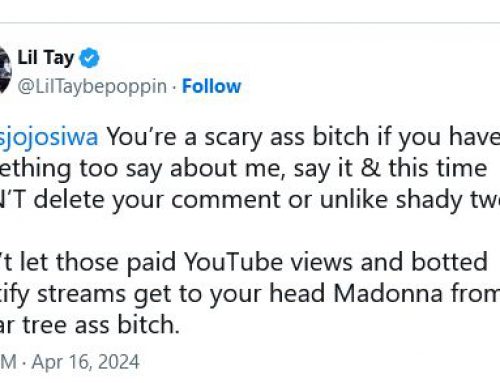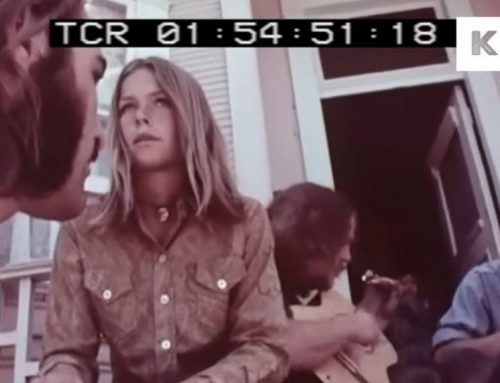The mainstream media is finally reporting on what I have been telling you for years.
The wealthy farmer has bribed media outlets through foundation grants to their favorite charities in return for never printing anything negative about the farmer.
Bill Gates
Billionaire Bill Gates Uses Money to Shape the Media
The role of philanthropy in Bill Gates’s global empire is well known. But the Gates Foundation’s contributions to media organizations are huge, underexamined, and a significant part of how one of the world’s wealthiest men has built and protected his image.
Investigative journalist Tim Schwab has spent much of the past year and half writing on Gates, his foundation, and the way both have leveraged charitable giving to advance an agenda. Last year, he published a lengthy investigation into Gates’s media contributions — a hitherto underexplored part of the Gates empire and the key to understanding Gates’s cozy relationship with the world’s imagemakers.
In this conversation, Jacobin’s Luke Savage sits down with Schwab to discuss Gates’s media strategy, what lies ahead for the Gates Foundation, and how billionaire-led big philanthropy has inserted itself into public interest journalism.
LS
The period of time spanning 2020–2021 has been quite a roller coaster for Bill Gates’s public image. He got some great press at the beginning of the pandemic (we’ll come back to that in a moment) but has recently taken quite a brand hit amid his divorce and some of the revelations that have come out of it.
Can you tell us, broadly speaking, a bit more about this arc and what Gates himself has been up to over the past year or so? And how has the mainstream media narrative around him diverged from an honest reckoning with the facts and his own motivations?
TS
It’s been really an extraordinary couple years for the Gates Foundation. Early in the pandemic, the Gates Foundation inserted itself, in a very central way, into the pandemic response. You saw Bill Gates constantly on CNN, on the media playing expert. He’s weighing in in the New England Journal of Medicine, he’s publishing long op-eds: “I’m going to prescribe what governments should be doing.” This is a private billionaire in Seattle at the highest levels of the scientific discourse, the New England Journal of Medicine, telling governments what they should be doing. And it really showed you how institutionalized his power has become in these areas like global health and vaccines. But he’s also playing an important role behind the scenes. There is a global effort, nominally under the auspices of the World Health Organization — though the World Health Organization doesn’t actually have a lot of power in how this plays out — but this is an effort to get vaccines, diagnostics, and therapeutics to the global poor. And the Gates Foundation has arguably been the most important voice and actor in that project, though a lot of that power is behind the scenes.
Investigative journalist Tim Schwab has spent much of the past year and half writing on Gates, his foundation, and the way both have leveraged charitable giving to advance an agenda. Last year, he published a lengthy investigation into Gates’s media contributions — a hitherto underexplored part of the Gates empire and the key to understanding Gates’s cozy relationship with the world’s imagemakers.
In this conversation, Jacobin’s Luke Savage sits down with Schwab to discuss Gates’s media strategy, what lies ahead for the Gates Foundation, and how billionaire-led big philanthropy has inserted itself into public interest journalism.
LS
The period of time spanning 2020–2021 has been quite a roller coaster for Bill Gates’s public image. He got some great press at the beginning of the pandemic (we’ll come back to that in a moment) but has recently taken quite a brand hit amid his divorce and some of the revelations that have come out of it.
Can you tell us, broadly speaking, a bit more about this arc and what Gates himself has been up to over the past year or so? And how has the mainstream media narrative around him diverged from an honest reckoning with the facts and his own motivations?
TS
It’s been really an extraordinary couple years for the Gates Foundation. Early in the pandemic, the Gates Foundation inserted itself, in a very central way, into the pandemic response. You saw Bill Gates constantly on CNN, on the media playing expert. He’s weighing in in the New England Journal of Medicine, he’s publishing long op-eds: “I’m going to prescribe what governments should be doing.” This is a private billionaire in Seattle at the highest levels of the scientific discourse, the New England Journal of Medicine, telling governments what they should be doing. And it really showed you how institutionalized his power has become in these areas like global health and vaccines. But he’s also playing an important role behind the scenes. There is a global effort, nominally under the auspices of the World Health Organization — though the World Health Organization doesn’t actually have a lot of power in how this plays out — but this is an effort to get vaccines, diagnostics, and therapeutics to the global poor. And the Gates Foundation has arguably been the most important voice and actor in that project, though a lot of that power is behind the scenes.
And then it’s exactly like you said. Suddenly this news out of nowhere comes out that Bill and Melinda Gates are getting divorced. I didn’t know what to think of that. The official line at the time was, “Well, this doesn’t change anything. This is a personal matter.” And then, all of a sudden, news started coming out about Bill Gates’s relationship with Jeffrey Epstein, along with allegations that Bill Gates had acted inappropriately toward female subordinates at Microsoft and the Gates Foundation over decades (there are numerous allegations, which he denies). That created this opening where journalists started to take a new interest in the Gates Foundation because of personal scandals: around the divorce, around Epstein, around these allegations of womanizing. Then, at the same time, the pandemic response that Gates was helping to lead for the global poor was going terribly wrong. It wasn’t working, and it’s still not working. I just looked today, and I think it’s only 5 percent of people in low income countries have received their first vaccine dose. This plays into the idea of vaccine inequity and vaccine apartheid.- Source
Read more on these Tags: Bill Gates









